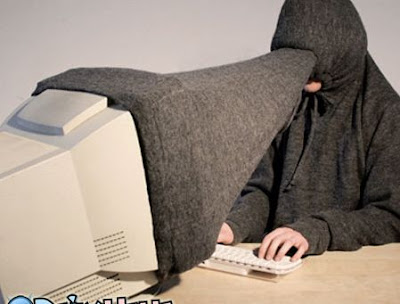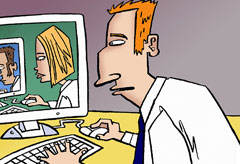I get quite a few emails from one of my other sites asking me how I can surf anonymous. You’d be surprised both how many people search for this information – and how many people misspell anonymous! But enough of this brevity, the reason people are worried is that our information is not safe, it’s not secure.
You might need a search warrant or a crowbar to gain access to your home PC and information. But unfortunately there’s much easier ways to gain access to your personal browsing history, your emails, your banking logons and well just about everything else you do online.
In fact despite what you read your PC is a much safer place for your information. When it hits the net, you are no longer in control. This is the problem when people ask me how to surf annonymous, they don’t realise that the first step out on to the internet is their ISP. Sitting happily on the ISP logs is a complete record of absolutely everything you do online. Every web site you visit, every file and picture you download and every video you watch is associated with your account and stored at your ISP.
If you’re in the US the police or NSA can access this information at will, in Europe Governments are planning legislation to access this information centrally. Who knows how many hackers and identity thieves have access to this information, how much do you know about security at your ISP?
So my friends – if you want to ahem – surf anoynmous then check out how to encrypt your connection and protect yourself – try this video to start.


